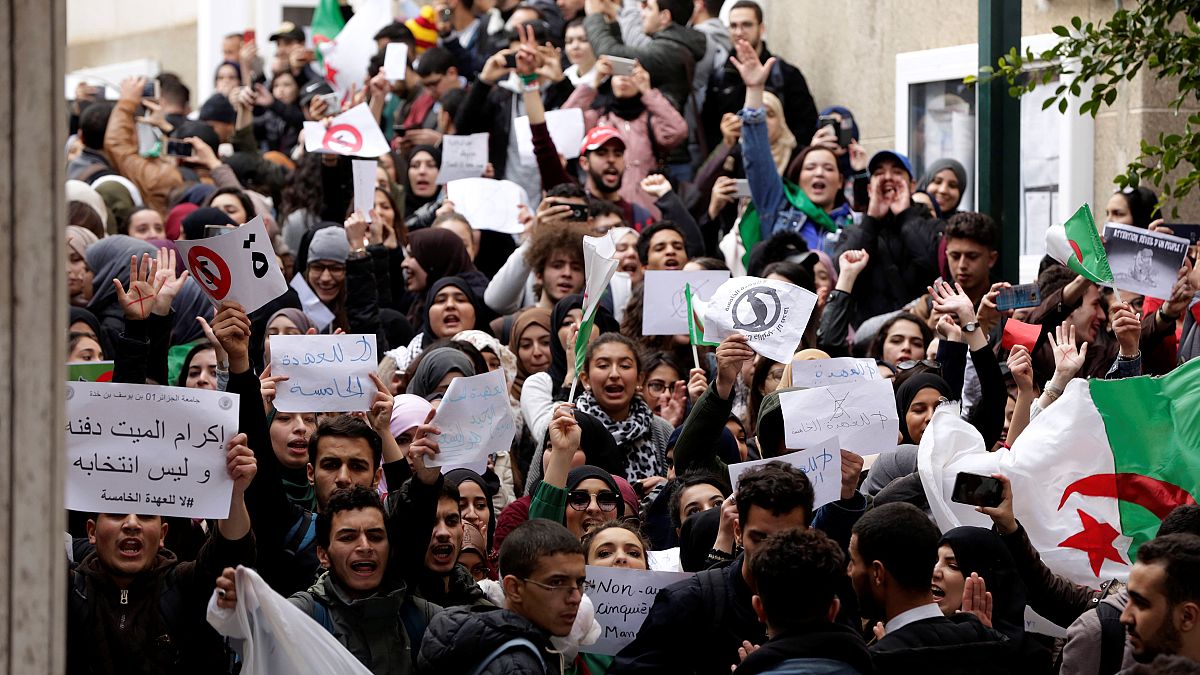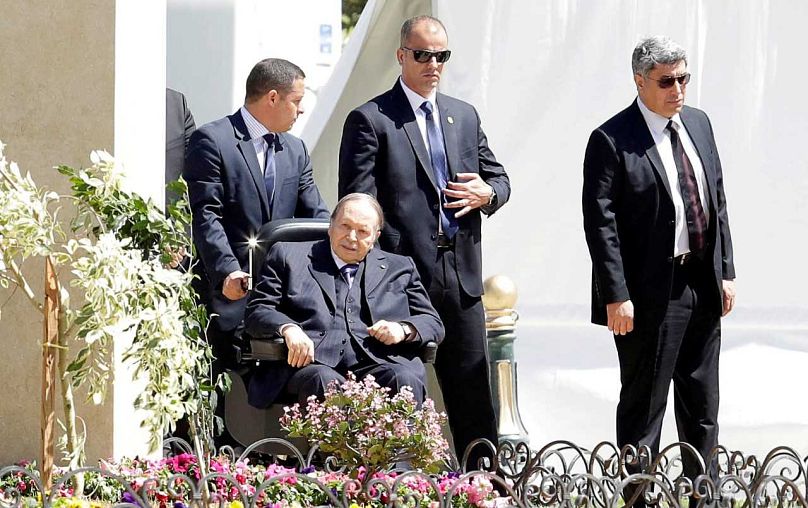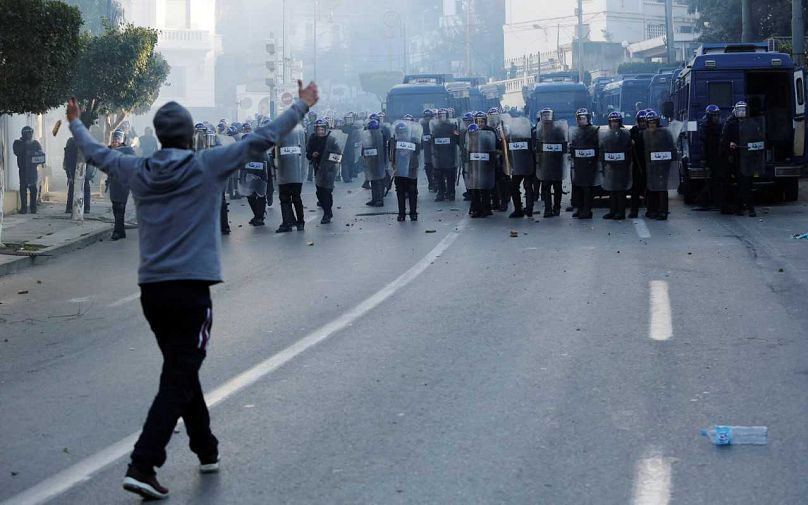Thousands of Algerians have taken to the streets in protest another Abdelaziz Bouteflika presidential bid. The ailing, 81-year-old president recently announced he will seek a fifth five-year term but remains under care at a Swiss hospital.
Thousands of Algerians have been protesting throughout the North African country for the past week after President Abdelaziz Bouteflika's decision to stand again in April's elections.
The ailing 82-year-old (who will turn 82 this weekend) president recently announced he will seek a fifth five-year term but remains under care at a Swiss hospital, the Tribune de Geneve (TdG) newspaper reported Wednesday.
Protests are reaching boiling point as Algerian police are being deployed around the parliament in Algiers on Friday ahead of new demonstrations. Tear gas has already been deployed.
Riot police vans have lined the street leading to the presidential headquarters in an effort to thwart the advancement of protesters.
However, protest organisers want the demonstration to remain peaceful and have issued an appeal for protesters to stay 2 metres away from police cordons and encouraged family members to clean up after the march.
These demonstrations are happening against the backdrop of difficult economic conditions for Algeria, and are taking place not only on the streets of Algiers. Hundreds of Algerians living in Paris gathered on Sunday (February 24) at Place de la Republique to show their disapproval of Bouteflika's mooted fifth term.
Why are people protesting?
Algeria's ruling party, National Front of Liberation (FNL), announced Bouteflika's candidacy in early February during a rally of more than 2000 militants in Algiers.
The announcement brought about the largest nationwide protests since the Arab Spring in 2011. Many Algerians felt Bouteflika's bid was a humiliation to the people's democracy and qualified the pick as a rape of the people dignity.
Organisers want Bouteflika to "renounce" his decision to seek a new term, notably because of his health. The crowd of mostly young people shouted slogans of "No fifth term!" and "No to corruption!"
Hundreds of students responded to social media and skipped classes to stage protests on Tuesday (February 26) in several university cities across Algeria.
"We are here today to make a change," one student protester named Amina told AP, "to change things because we are living in a really rotten situation. We are against the fifth term and we have to act hand-in-hand to change things in this country."
Students chanted "Algeria wants change."
On Thursday (February 28) dozens of journalists called for a "free and democratic press" at a protest in Algeria's capital to denounce their media outlets' refusal to let them cover demonstrations against the idea of Bouteflika's fifth term.
How does a sick 82-year-old who is never seen in public seek a fifth term?
Bouteflika has been serving as the nation's president since 1999 but has been almost completely absent from the political scene due to suffering a stroke in 2013.
Five years later, Bouteflika health remains a serious question as he was unable to announce his own candidacy.
Many protesters believe this bid is just a façade behind which a certain political-military and business elite hide. Yet polls suggest that many Algerians are likely to vote for Bouteflika again, fearing his departure could lead to government instability and have negative consequences for the country.
Unable to agree on a successor, Algeria’s military and civilian elites— known as Le Pouvoir— determined that Bouteflika must run again to ensure the regime’s continuity.
What are the wider issues of unrest?
These recent protests go well beyond Bouteflika's bid for a 5th term, as many believe it is just the tip of the iceberg. Young people are feeling the brunt of the country's difficult economic conditions as 30% of Algerian youth are currently unemployed. Algeria's census remains youthful as a whole, with 54% of the country's 42 million population under the age of 30.
The sharp fall of revenues, less than $80 billion of foreign currency reserves, in this oil-dependent country worsened the situation since there is a lack of funds to buy civil peace as Bouteflika has done since coming into power 20 years ago.
Algeria received more than $1 trillion from oil revenues from 2000 to 2013 but corruption and poor economic policy hindered growth and production for the North African nation to compete in the global market.
How does Algeria see itself in relation to other Maghreb nations and Europe?
Algeria is Africa's largest geographical country since the independence of South Sudan, and the tenth largest country on earth extending from the Mediterranean coastline to the sandy dunes of the Sahara Desert. Algeria is the continent's ninth most populous country with 42,679,018 people, according to Worldometers.
Algeria is a key country in its Maghrebian and African environment and can play a much more important role had not there been the Western Sahara question that is poisoning relations with Morocco. This question is the major obstacle in front of the paralysed Arab Maghreb Union that is celebrating its 30th anniversary this year.
Algeria is also the third biggest supplier of gas to the EU including half of Spain's natural gas imports, which is why stability remains a key factor to the president's bid for a fifth term, especially with their neighbour Libya turning into a failed state.
Algeria could play a much bigger role if political stability is helped by democratic rule and a more efficient economy that keeps youths in their home country and does not push them to search for a better life abroad.


